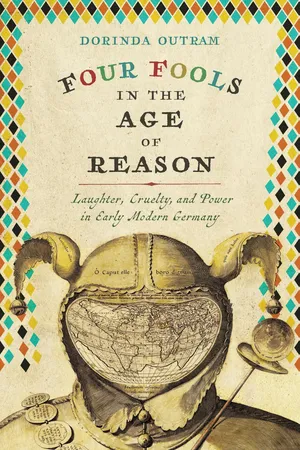1. See also Gottfried Wilhelm Leibniz, The Art of Controversies, ed. Marcelo Dascal et al. (Dordrecht: Springer, 2006), esp. chap. 16, “Towards a Heuristics for Persuading.” Leibniz, living in the aftermath of the confessional wars of the seventeenth century, worked hard to bring former enemies to the negotiating table rather than encouraging divisive public religious controversy. As he said, “En un mot, l’art de conférer et disputer auroit besoin d’estre tout refondu” (Negotiating and arguing need to be entirely rethought) (Leibniz, Nouveaux essais sur l’entendement humain, 4.7.11).
2. Peter Novick, That Noble Dream: The “Objectivity Question,” and the American Historical Profession (Cambridge: Cambridge University Press, 1988).
3. The “Abfall der Geschichte” (rubbish tip of history) is a phrase from Benjamin’s Passagenwerk (Walter Benjamin, Gesammelte Schriften, 12 vols., ed. Rolf Tiedemann [Frankfurt-am-Main: Suhrkamp, 1980], 5:575). It connects with Benjamin’s belief in history writing as bricolage, as fashioned from Trödel, pieces of rubbish that have lost their former use (see Stephan Seitz, Geschichte als Bricolage: W. G. Sebald und die Poetik des Bastelns [Göttingen: V & R Unipress, 2011]).
4. Karl Friedrich Flögel, Geschichte der Hofnarren (Leipzig: David Siegert, 1789). For enlarged editions, see, for example, Friedrich Wilhelm Ebeling, Zur Geschichte der Hofnarren (Leipzig: J. Lehmann, 1864); Ebeling, Flögels Geschichte des Grotesk-Komischen, neu bearbeitet und erweitert (Leipzig: Adolf Werl, 1862); Flögel, Geschichte des Grotesk-Komischen (Munich: Müller, 1914).
5. Karl Friedrich Flögel, Geschichte der komischen Litteratur, 2 vols. (Liegnitz: David Siegert, 1784); Karl Friedrich Flögel, Geschichte der Grotesk-Komischen, 2 vols. (Leipzig: David Siegert, 1788). See, for one of the few modern attempts to place Flögel in a literary tradition, Michel Espagne, “L’Histoire du grotesque et du comique de Karl Friedrich Flögel (1729–1788),” in Pitres et Pantins: Transformations du masque comique: De l’Antiquité au théâtre d’ombres, ed. Sophie Basch and Pierre Chauvin (Paris: PUPS, 2007), 153–68: “Le grotesque n’est pas destiné seulement à faire rire, mais il est le marqueur d’un envers de la société policée, il revèle des tendances anthropologiques profondes que l’ordre social dissimule, il a une dimension de déchainement dionysiaque” (153).
6. Karl-Friedrich Flögel, Geschichte der komischen Litteratur: “In wiefern verdient die Geschichte der komischen Litteratur den Namen einer Geschichte?” (To what extent does the history of comic literature deserve the name of history?) (vol. 1, Zweite vorläufige Abhandlung [second preliminary discourse], 3:1).
7. Johann Heinrich Zedler, Grosses vollständiges Universal-Lexikon aller Wissenschaften und Kunste, welche bishero durch menschlichen Verstand und Witz erfunden und verbessert worden . . ., 64 vols. (Halle: Zedler, 1732–50); Johann Christoph Adelung, Grammatisch-Kritisches Wörterbuch der hochdeutschen Mundart, 2 vols. (Vienna: A Pichler, 1796).
8. This section is indebted to David Sorkin, The Religious Enlightenment: Protestants, Jews and Catholics from London to Vienna (Princeton: Princeton University Press, 2008), 113–63.
9. Christa Knellwolf, “The Science of Man,” in The Enlightenment World, ed. Martin Fitzpatrick, Peter Jones, Knellwolf, and Ian McCalman (London: Routledge, 2004), 194–206.
10. Friedrich ChristianWeber, Das veränderte Ruszland [sic] . . . mit einem accuraten Land-Charte und Kupferstichen versehen, 2 vols. (Frankfurt: Nicolas Forster, 1739–44).
11. Flögel, Hofnarren (1789), 274.
12. Enid Welsford, The Fool: His Social and Literary History (London: Faber and Faber, 1935). Also excerpted in Twentieth-Century Interpretations of the “Praise of Folly”: A Collection of Critical Essays, edited by Kathleen Williams (Englewood Cliffs, NJ: Prentice Hall, 1969), 101–5.
13. Enid Welsford, The Court Masque: A Study in the Relationship between Poetry and the Revels (Cambridge: Cambridge University Press 1927), viii.
14. Elsie Duncan-Jones, “Enid Welsford (1892–1981),” in Cambridge Women: Twelve Portraits, ed. Edward Shills and Carmen Blacker (Cambridge: Cambridge University Press, 1996), 203–19.
15. I. A. Richards, Science and Poetry, originally appeared in 1926, the year before the publication of Welsford’s The Court Masque, and then in a reworked edition in 1935, the year of publication of The Fool (London: Kegan Paul, 1935); Welsford, The Fool, 403n.
16. Welsford, The Fool, 242.
17. Welsford, The Fool, 193–94.
18. Compare with the argument by the American social critic Christopher Lasch (1932–1994) that nostalgia was frowned upon by the 1930s (Christopher Lasch, The True and Only Heaven: Progress and Its Critics [New York: Norton, 1991]).
19. Beatrice Otto, Fools Are Everywhere (Chicago: University of Chicago Press, 2001), xvii. Otto also denies the existence of fools past the period of the Renaissance: “Perhaps because the European court jesters were so inextricably linked with the tradition of folly that straddled the Middle Ages and ...
